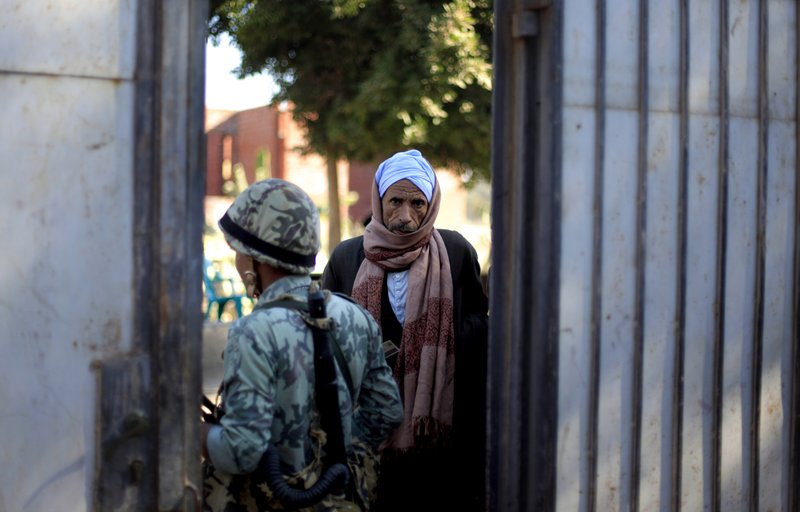CAIRO — Egypt's Islamist-backed constitution headed toward likely approval in a final round of voting on Saturday, but the deep divisions it has opened up threaten to fuel continued turmoil.
Passage is a victory for Islamist President Mohammed Morsi, but a costly one. The bruising battle over the past month stripped away hope that the long-awaited constitution would bring a national consensus on the path Egypt will take after shedding its autocratic ruler Hosni Mubarak nearly two years ago.
Instead, Morsi disillusioned many non-Islamists who had once backed him and has become more reliant on his core support in the Muslim Brotherhood and other Islamists. Hard-liners in his camp are determined to implement provisions for stricter rule by Islamic law in the charter, which is likely to futher fuel divisions.
His liberal and secular opposition, in turn, faces the task of trying to organize the significant portion of the population angered by what they see as attempts by Morsi and the Brotherhood to gain a lock on political power. The main opposition group, the National Salvation Front, said it would now start rallying for elections for the next lawmaking, lower house of parliament, expected early next year.
"We feel more empowered because of the referendum. We proved that at least we are half of society (that) doesn't approve of all this. We will build on it," the Front's spokesman, Khaled Daoud, said. Still, he said, there was "no appetite" at the moment for further street protests.
Saturday's voting in 17 of Egypt's 27 provinces was the second and final round of the referendum. Though the constitution is widely expected to pass, the key questions will be over turnout and the margin of victory. Preliminary results from the first round a week ago showed only 32 percent turnout and a relatively low edge of 56 percent for the "yes" vote. Preliminary results from the second round are expected to emerge by early Sunday.
The new constitution would come into effect once official results are announced, expected in several days.
In a sign of disarray in Morsi's administration, his vice president and — possibly — the central bank governor resigned during Saturday's voting. Vice President Mahmoud Mekki's resignation had been expected since his post is eliminated under the new constitution. But its hasty submission even before the charter has been sealed and his own resignation statement suggested it was linked to Morsi's policies.
The status of Central Bank Governor Farouq el-Oqdah was murkier. State TV first reported his resignation, then soon after reported the Cabinet denied he has stepped down in a possible sing of confusion. El-Oqdah, in his post since 2003, has reportedly been seeking to step down but in recent weeks the administration was trying to convince him to stay on. The government is eager to show some stability in the economy as the Egyptian pound has been sliding and a much-needed $4.8 billion loan from the IMF has been postponed.
